#but visiting is inevitable
Text
MadPat with Reader getting yelled at in the Pizzeria
Totally not based off my experiences with working at a pizzeria
Mad loves having you work with him. Even if it’s only part-time, every time you're at the pizzeria, he's in a noticeably better mood, and the other employees are grateful.
He sometimes just lingers around the area where you're stationed so he can watch you work.
He's in the kitchens, observing one of the new employees to make sure they're not messing up. It's his absolute least favorite part of owning the pizzeria, and he's definitely not pleased. All he wants is to go home and just spend time with you.
It's actually kind of surprising that he hears the commotion coming from the dining part of the pizzeria, because the kitchen is loud, but he does, and his attention is drawn to it.
He's mostly expecting it to be some child being scolded by its mother- god he hates those creatures- or some employee that dropped a pizza by accident.
But... he finds you, basically surrounded by three teenage boys.
They're yelling, and you're clearly not sure what to do, because your eyes dart between them and you're definitely scared.
"How hard is it to make a fucking pizza?" One of the kids, the one with the bad hair, yells directly at you.
He pulls you away from them quickly, now enraged that they would dare speak to you like that. It hurts him how you panic a little more at the feeling of being pulled away, but he hides you behind him, out of sight. You cling to him desperately.
"Is there a problem?" Mad says through gritted teeth, fighting each and every one of his demons to not murder the kids right there and then.
"We ordered a pizza ten minutes ago, where is it? It can't be that hard to make!"
"Did my employee warn you there would be a wait?"
"No!"
His eyes narrow. He's seen you work. You always let customers know about the wait for their food. So not only are these idiotic kids yelling at his best employee- his lover- but they've been ignoring you too. It's starting to look exponentially worse for them.
He wants to kick them out. The way you squeeze him a little tighter after the boy yells again only fuels that.
"Are we going to get our pizza or not?" Another one of the three teenagers says, frustrated for no reason at all, really.
He thinks for a second. "No. Get out."
"What?!" The teenagers all shout.
"You're banned from my pizzeria. Get. Out."
The boy with the bad hair scoffs. "Fine. Come on, guys."
The three boys and a fourth teen, a girl, leave. The girl, without the boys noticing, mouths an I'm sorry, and he nods slightly, turning to you to make sure you saw it too.
"Are you okay?" He asks as soon as they're gone, holding your shoulders.
You shaking from the encounter makes him furious, and once again he debates adding to the list of missing children in the pizzeria.
He doesn't even care when your shift ends, he's the owner of the place and he can do what he wants. He tells you to grab your stuff and clocks you out and takes you home.
He's literally so soft for the rest of the day, because seeing you being yelled at made him so angry and protective that he just wants to make sure you're okay :)
If you want to go back to work later that day, he'll probably let you, but he will keep a closer eye on you.
#I have never gone this feral for a post goddamn#I actually headcanon that Mad doesn't visit his pizzeria unless he absolutely has to#and that he prefers to stick to the paperwork side of things#but visiting is inevitable#anyway for the sake of this fanfiction we will pretend he works there frequently#i wrote this instead of sleeping#tw swearing#tw yelling#I feel bad putting a whole other story in the tags but I feel the need to mention all of my thoughts#“the kid with the bad hair” genuinely had the worst/weirdest hair I've ever seen in my life#tw mentions of murder#I want me a man who would murder annoying teenagers for me :(#madpat#game theory#fnaf the musical#matpat#matpat x reader
74 notes
·
View notes
Text
instead of releasing a remake of american psycho I believe they should release an alternate american psycho 2 focusing on evelyn that follows the same timeline as the original film but from her perspective. similarly to patrick, evelyn craves both social acceptance by and social superiority over her peers, specifically those in the art world. evelyn has an obsession with curating a painting collection intended to rival museums. she surrounds herself with people she believes will further her status as a woman of arts and culture, but who she also believes will be easy enough to control and manipulate, and her relationship with patrick is largely fabricated to further her own social standing as well - which is why she cannot allow him to leave her and tarnish her reputation/what she has been working for. evelyn herself does not kill anybody for the majority of the film, instead opting for psychological manipulation and mild bodily harm when her pawns step out of line. similarly to patrick in the original, we also see her begin to lose control as she becomes more and more aware of her actual place in society rather than her perceived place in society, realizing that she is limited in her power and ultimately forgettable when compared to her peers. this angers her and desperation sets in as her mask of poise and tastefulness slips away with patrick's proposed breakup being her final straw. at the film's end we see a disheveled evelyn, complete with smeared mascara and unkempt hair, reaching for a knife and rushing over to kill patrick herself in a last ditch attempt to regain her power over him. whether she succeeds or not is left ambiguous but in the final scene we see her fixing her makeup in a compact and as she reaches up to wipe excess lipstick off the corner of her lip we see a red stain on the side of her finger that looks more like blood than it does lipstick.
#american psycho#i havent visited this idea in YEARS so qll rhe specific details of it qre muddled but in honor of the inevitably bad remake announcement#levis greatest hits
82 notes
·
View notes
Text
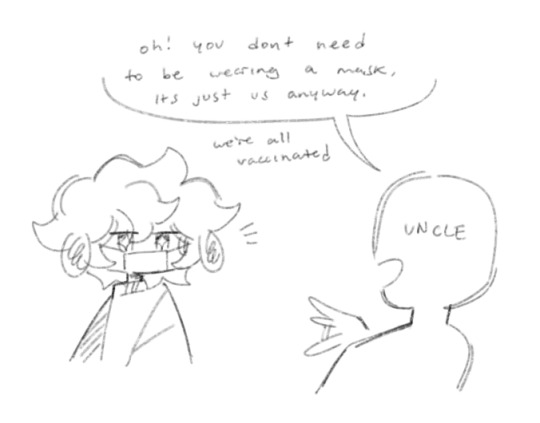
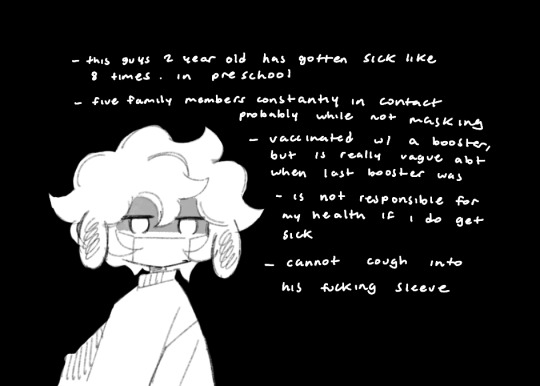
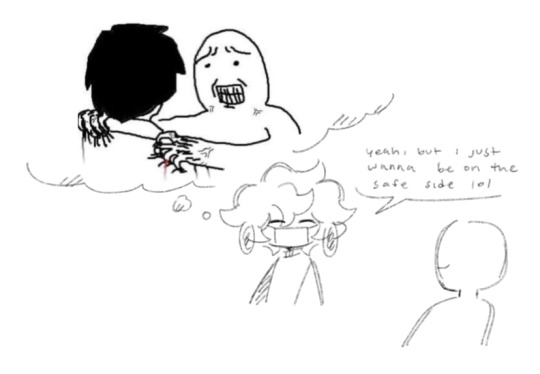
man
#maybe im being pessimistic abt this. im not saying u should wear a mask every waking moment of your life god knows i cant#but also. hell no i dont trust u if anything i distrust u ppl even more after how things played out for the past 3 years#like there are situations where it might be inevitable catching covid. most of my family members are nurses and in constant contact#but there are also a ton of ways to make that risk low as possible like masking and wearing a face shield and having sanitizer#for me its not enough to just say oh we're in a small group and we're all vaccinated#motherfucker your kid is sick from preschool EVERY TIME WE VISIT. of course ill be wearing a mask she gave me covid last year#also no the fuck it isnt seasonal the cases go up because lack of caution makes the virus spread and mutate especially around times when#ppl gather. add that with virus transmission in cold weather and its a matter of different factors increasing the risk of spread#im also tired of ppl not understanding that i wont be their responsibility if i do get sick. maybe they can help me recover#but at the end of the day the risk of death and long term health is all on me. i cant change that#the govt barely gives me accommodations what makes u think theyll do anything for every individual case of long covid or worse#im so tired. im so tired#i dont even know if its possible to want this to be over anymore i just wish we didnt have to deal with this in the first place#ALSO COUGH INTO YOUR SLEEVE SERIOUSLY HOW IS THIS SO HARD TO REMEMBER#oh its just a cold/dry throat its not like i have covid or anything. no!! its basic hygiene!!! how is this so hard to understand!!!!!!!!!!#and no this isnt abt whether people have the means to protect themselves this is me bitching abt my relatives not taking me seriously#vent#my art#myart#doodles#covid 19
104 notes
·
View notes
Text
trackerbees breakup hits different when u remember tracker drunkenly got a tattoo of kristen’s name on her neck on leviathan
#fantasy high#dimension 20#dimension 20 fhjy#tracker o'shaughnessey#kristen applebees#trackerbees#should’ve known the breakup was inevitable the way kristen was acting in college visit
72 notes
·
View notes
Text
My dad was very against me getting a dog and then IMMEDIATELY fell in love with her. Like he absolutely adores her. He started off like 'uggh I don't want to end up having to take care of it' and now he REQUESTS to babysit her every couple weeks or so just for fun. He will just sit there petting her and chuckling and saying "She just makes me laugh :)" to himself. He calls himself her 'grandpa'. The bond between an aging father and the pet he didn't want is probably the deepest love on earth.
#(I don't live with my parents but we are actively in each others lives so me getting a dog would inevitably affect them)#He literally keeps talking about how it's like having a grandchild come visit LOL (he's not the 'overly humanizing pets' type but just#the 'bond with dogs feels familial' type)#She LOVES him too she gets so excited when she realizes she's going to Grandpa House#She's very shy with strangers but approaches men roughly his age and size to sniff them and I'm pretty confident that she's checking to#see if they're him. Like she won't approach any other demographic.#I think she likes him SLIGHTLY more than me lol but it's fair because my parents' dog likes me SLIGHTLY better than them so#it balances out
31 notes
·
View notes
Text
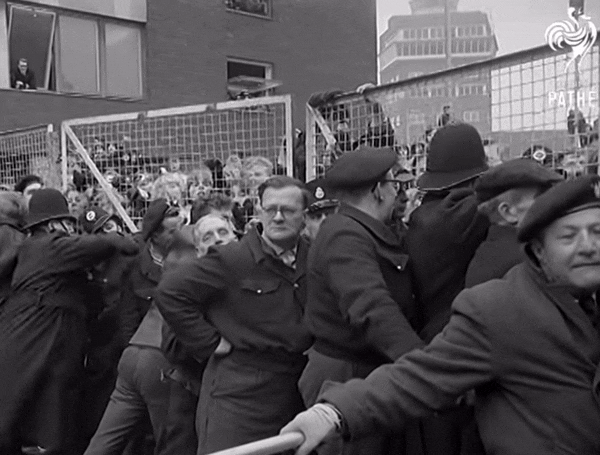


Police and reporters await the arrival of the Beatles at London Airport, 22nd February 1964 - part 2 (part 1, part 3, part 4)
#the look on those policemen’s faces#the accepted inevitably of failure#it was sixty years ago today#the beatles#the first u.s. visit#javelin’s gifs#february 1964#javelin’s gifs: 1964
51 notes
·
View notes
Text

the city on the mesa
#horizon forbidden west#hfw#aloy#hfw meridian#hfw the alight#yes i already have another post with this caption lol#with the news of hfw's pc release i am EXCITED for the hopefully inevitable mod that will remove the reload barriers/invisible walls#so i can visit all of these places that have been *haunting me*#(actually idk if my laptop can handle it... but we'll cross that bridge when we come to it i guess)#i believe this shot was from glitch-jumping up one of the construction platforms around the alight#(rip jump glitch)#wait why was there a 'see' at the end in my caption wtf?#i swear i did not type that tumblr lol
90 notes
·
View notes
Text

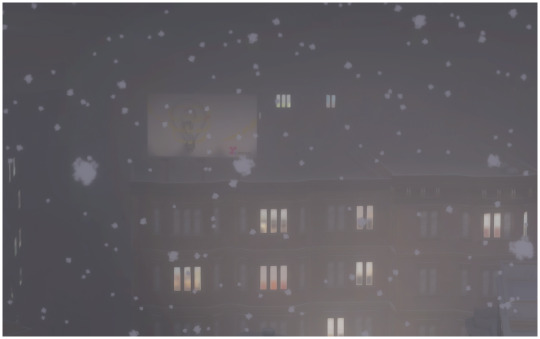
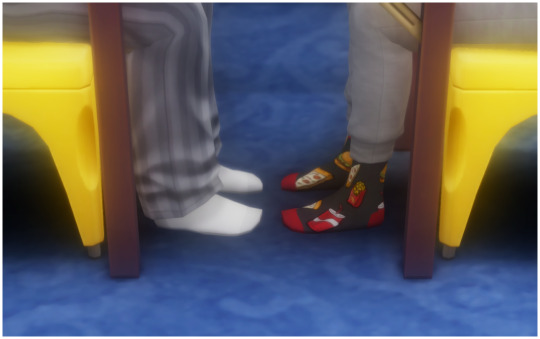

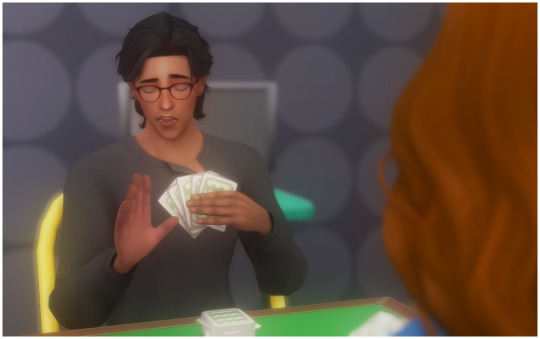
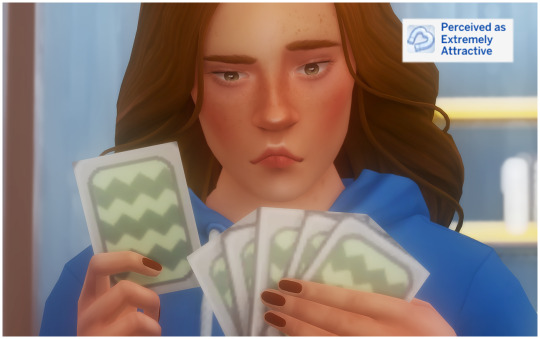
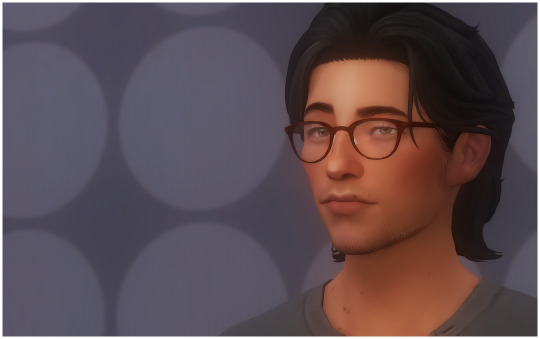




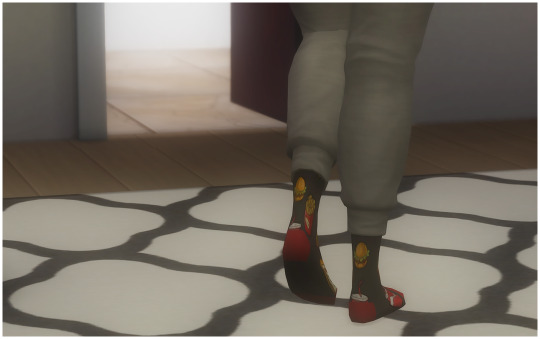
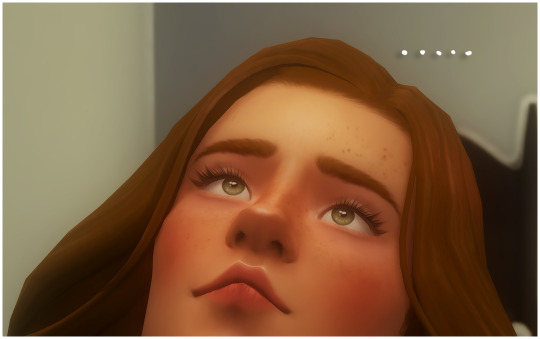

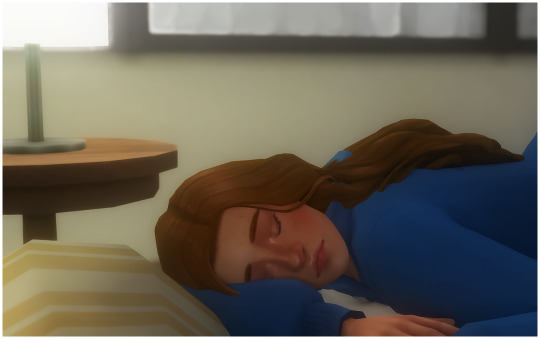
as the blizzard came to an end, arlie drifted into sleep and thought about how rom-coms are so totally inaccurate...
#chardonnay legacy#CL: G1#ts4 gameplay#ts4 legacy#first pic: “so... a green sink?”#fun fact time#arlie got the spare bedroom that hasn't been touched in like a year#vikram has a roommate btw but he crashed with someone else this night#but this third bedroom? it was meant for someone else#someone who inevitably isn't in vikram's life anymore 👀#anyway she totally thought he was showing her the bedroom so they could makeout like the strangers they are in a blizzard#EVEN THOUGH she still doesn't find him attractive#vikram couldn't help but notice how cute arlie was during their card game though#his SMILE!! hot mama#p.s. those pizza socks are totally his. she got wine on her socks too lol#p.p.s. vlad trespassed after this and went STRAIGHT for arlie's neck. first vlad visit i've had since i got vampires.
19 notes
·
View notes
Text
Clad in Justice and Worth
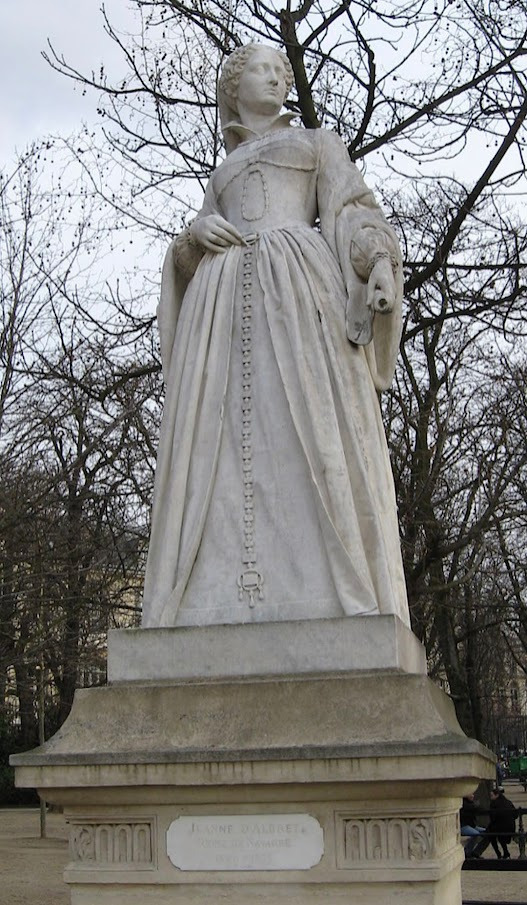
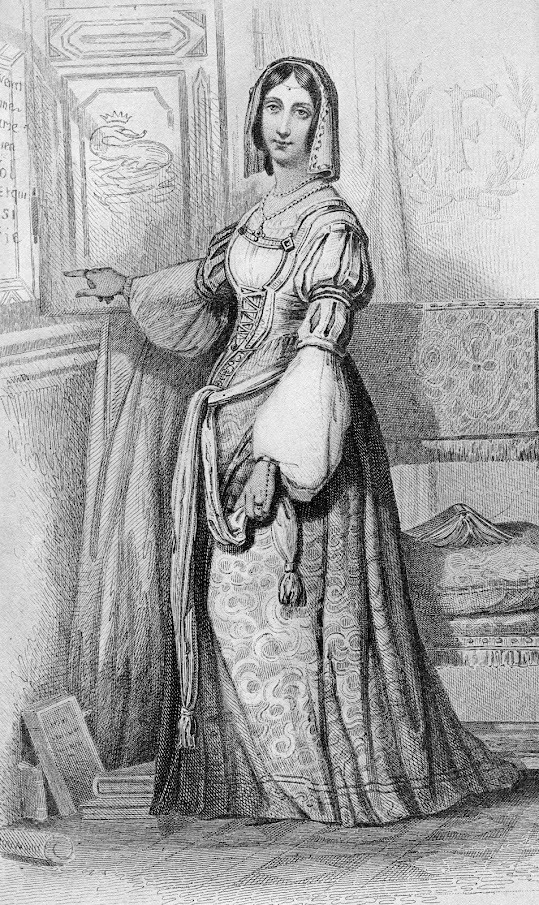
Written for the Inklings Challenge 2023 (@inklings-challenge). Inspired by the lives of Jeanne d'Albret and Marguerite de Navarre, although numerous liberties have been taken with the history in the name of introducing fantastical elements and telling a good story. The anglicization of names (Jeanne to Joan and Marguerite to Margaret) is meant to reflect the fictionalization of these figures.
The heat was unbearable, and it would grow only hotter as they descended into the lowlands. It was fortunate, Joan decided, that Navarre was a mountain country. It was temperate, even cold there in September. It would be sweltering by the sea.
The greater issue ought to have been the presence of Monluc, who would cut Joan’s party off at the Garonne River most like. The soldiers with whom she traveled were fierce, but Monluc had an entire division at the Garrone. Joan would be a prisoner of war if Providence did not see her through. Henry, perhaps, might suffer worse. He might be married to a Catholic princess.
Yet Joan was accustomed to peril. She had cut her teeth on it. Her first act as queen, some twenty years ago, had been to orchestrate the defense of her kingdom, and she was accustomed to slipping through nets and past assassins. The same could not be said of the infernal heat, which assaulted her without respite. Joan wore sensible travel clothing, but the layers of her skirts were always heavy with sweat. A perpetual tightness sat in her chest, the remnant of an old bout with consumption, and however much she coughed it would not leave.
All the same, it would not do to seem less than strong, so she hid the coughing whenever she could. The hovering of her aides was an irritant and she often wished she could just dismiss them all.
“How fare you in the heat, Majesty?”
“I have war in my gut, Clemont,” Joan snapped. “Worry not for me. If you must pester someone, pester Henry.”
He nodded, chastened. “A messenger is here from Navarre. Sent, I suspect, to induce you to return hence.”
“I would not listen to his birdcalls.”
“Young Henry said much the same.”
Joan stuffed down her irritation that Clemont had gone to Henry before he’d come to her. She was still queen, even if her son was rapidly nearing his majority. “Tell him that if the Huguenot leaders are to be plucked, I think it better that we all go together. Tell him that I would rather my son and I stand with our brothers than await soldiers and assassins in our little kingdom.”
Her aide gave a stiff nod. “At once, your Majesty.”
She would breathe easier when they reached the host at La Rochelle. Yet then, there would be more and greater work to do. There would be war, and Joan would be at the head of it.
*
When she awoke in the night, Joan knew at once that something was awry. It was cool. Gone was the blistering heat that had plagued them all day. Perhaps one of the kidnapping plots had finally succeeded.
Certainly, it seemed that way. She was in a cell, cool and dank and no more than six paces square. And yet—how strange! —the door was open.
Rising unsteadily to her feet, Joan crept towards the shaft of moonlight that fell through it. She glanced about for guards, but saw only a single prisoner in dirty clothes standing just beyond the threshold. He was blinking rapidly, as though the very existence of light bewildered him. Then, as Joan watched, he crept forward towards the gate of the jailhouse and out into the free air beyond. Joan listened for a long moment, trying to hear if there was any commotion at the prisoner’s emergence. When she could perceive none, she followed him out into the cool night air.
A lantern blazed. “Come quickly,” a voice hissed. “Our friend the Princess is waiting.”
The prisoner answered in a voice too quiet for Joan to hear. Then, quite suddenly, she heard his companion say, “Who is it that there behind you?”
The prisoner turned round, and Joan’s fingers itched towards her hidden knife. But much to her astonishment, he exclaimed, “Why, it is the lady herself! Margaret!”
But Joan had no opportunity to reply. Voices sounded outside her pavilion and she awoke to the oppressive heat of the day before. Coughing hard, Joan rolled ungracefully from her bed and tried to put away the grasping tendrils of her dream.
“The river is dry, Majesty” her attendant informed her as soon as she emerged from her pavilion, arrayed once again in sensible riding clothes. “The heat has devoured it. We can bypass Monluc without trouble, I deem.”
“Well then,” Joan replied, stifling another cough. “Glory to God for the heat.”
*
They did indeed pass Monluc the next day, within three fingers of his nose. Joan celebrated with Henry and the rest, yet all the while her mind was half taken up with her dream from the night before. Never, in all her life, had her mind conjured so vivid a sensory illusion. It had really felt cool in that jail cell, and the moonlight beyond it had been silver and true. Stranger still, the prisoner and his accomplice had called Joan by her mother’s name.
Joan had known her mother only a little. At the age of five, she had been detained at the French court while her mother returned to Navarre. This was largely on account of her mother’s religious convictions. Margaret of Angoulême had meddled too closely with Protestantism, so her brother the king had seen fit to deprive her of her daughter and raise her a Catholic princess.
His successor had likewise stolen Henry from Joan, for despite the king’s best efforts she was as Protestant as her mother. Yet unlike Margaret, Joan had gone back for her child. Two years ago, she had secretly swept Henry away from Paris on horseback. She’d galloped the horses nearly to death, but she’d gotten him to the armed force waiting at the border, and then at last home to Navarre. Sometimes, Joan wondered why her own mother had not gone to such lengths to rescue her. But Margaret’s best weapons had been tears, it was said, and tears could not do the work of sharp swords.
The Navarre party arrived at La Rochelle just before dusk on the twenty-eighth of September. The heat had faltered a little, to everyone’s great relief, but the air by the sea was still heavy with moisture. The tightness in Joan’s chest persisted.
“There will be much celebration now that you have come, Your Majesty,” said the boy seeing to her accommodations. “There’s talk of giving you the key to the city, and more besides.”
Sure enough, Joan was greeted with applause when she entered the Huguenot council. “I and my son are here to promote the success of our great cause or to share in its disaster,” she said when the council quieted. “I have been reproached for leaving my lands open to invasion by Spain, but I put my confidence in God who will not suffer a hair of our heads to perish. How could I stay while my fellow believers were being massacred? To let a man drown is to commit murder.”
*
Sometimes it seemed that the men only played at war. The Duke of Conde, who led the Huguenot forces, treated it as a game of chivalry between gentlemen. Others, like Monluc, regarded it as a business; the mercenaries he hired robbed and raped and brutalized, and though be bemoaned the cruelty he did nothing to curtail it.
There were sixty-thousand refugees pouring into the city. Joan was not playing at war. When she rose in the mornings, she put poultices on her chest, then went to her office after breaking her fast. There was much to do. She administered the city, attended councils of war, and advised the synod. In addition, she was still queen of Navarre, and was required to govern her own kingdom from afar.
In the afternoons, she often met with Beza to discuss matters of the church, or else with Conde, to discuss military matters. Joan worked on the city’s fortifications, and in the evenings she would ride out to observe them. Henry often joined her on these rides; he was learning the art of war, and he seemed to have a knack for it.
“A knack is not sufficient,” Joan told him. “Anyone can learn to fortify a port. I have learned, and I am a woman.”
“I know it is not sufficient,” the boy replied. “I must commit myself entirely to the cause of our people, and of Our Lord. Is that not what you were going to tell me?”
“Ah, Henry, you know me too well. I am glad of it. I am glad to see you bear with strength the great and terrible charge which sits upon your shoulders.”
“How can I help being strong? I have you for a mother.”
At night, Joan fell into bed too exhausted for dreams.
*
Yet one night, she woke once again to find her chest loose and her breathing comfortable. She stood in a hallway which she recognized at once. She was at the Château de Fontainebleau, the place of her birth, just beyond the door to the king’s private chambers.
“Oh please, Francis, please. You cannot really mean to send him to the stake!” The voice on the other side of the door was female, and it did not belong to the queen.
A heavy sigh answered it. “I mean to do just that, ma mignonne. He is a damned heretic, and a rabble-rouser besides. Now, sister, don’t cry. If there’s one thing I cannot bear, it is your weeping.”
At those words, a surge of giddiness, like lightning, came over Joan’s whole body. It was her own mother speaking to the king. She was but a few steps away and they were separated only by a single wooden door.
“He is my friend, Francis. Do you say I should not weep for my friends?”
A loud harumph. “A strange thing, Margaret. Your own companions told me that you have never met the man.”
“Does such a triviality preclude friendship? He is my brother in Our Lord.”
“And I am your true brother, and your king besides.”
“And as you are my brother—” here, Margaret’s voice cracked with overburdening emotion. She was crying again, Joan was certain. “As you are my brother, you must grant me this boon. Do not harm those I love, Francis.”
The king did not respond, so Joan drew nearer to the door. A minute later, she leapt backwards when it opened. There stood her mother, not old and sick as Joan had last seen her twenty years before, but younger even than Joan herself.
“If you’ve time to stand about listening at doors, then you are not otherwise employed,” Margaret said, wiping her tears from her face with the back of her hand. “I am going to visit a friend. You shall accompany me.”
Looking down at herself, Joan realized that her mother must have mistaken her for one of Fountainbleu’s many ladies-in-waiting. She was in her night clothes, which was really a simple day dress such as a woman might wear to a provincial market. Joan did not sleep in anything which would hinder her from acting immediately, should the city be attacked in the middle of the night.
“As you wish, Majesty,” Joan replied with a curtsey. Margaret raised an eyebrow, and instantly Joan corrected herself: “Your Highness.”
Margaret stopped at her own rooms to wrap herself in a plain, hooded cloak. “What is your name?” she asked.
“Joan, your Highness.”
“Well, Joan. As penance for eavesdropping, you shall keep your own counsel with regards to our errand. Is that clear?”
“Yes, your Highness,” Joan replied stiffly. Any fool could see what friend Margaret intended to visit, and Joan wished she could think of a way to cut through the pretense.
When Margaret arrived at the jail with Joan in tow, the warden greeted her almost like a friend. “You are here to see the heretic, Princess? Shall I fetch you a chair?”
“Yes, Phillip. And a lantern, if you would.”
The cell was nearly identical to the one which Joan had dreamed on the road to La Rochelle. Inside sat a man with sparse gray hair covering his chin. Margaret’s chair was placed just outside the cell, but she brushed past it. She handed the lantern to Joan and knelt down in the cell beside the prisoner.
“I was told that I had a secret friend in the court,” he said. “I see now that she is an angel.”
“No angel, monsieur Faber. I am Margaret, and this is my lady, Joan. I have come to see to your welfare, as best I am able.”
Now, Margaret’s hood fell back, and all at once she looked every inch the Princess of France. Yet her voice was small and choked when she said, “Will you do me the honor of praying with me?”
Margaret was already on her knees, but she lowered herself further. She rested one hand lightly on Faber’s knee, and after a moment, he took it. Her eyes fluttered closed. In the dim light, Joan thought she saw tears starting down her mother’s cheek.
When she woke in the morning, Joan could still remember her mother’s face. There were tears in her hazelnut eyes, and a weeping quiver in her voice.
*
Winter came, and Joan’s coughing grew worse. There was blood in it now, and occasionally bits of feathery flesh that got caught in her throat and made her gag. She hid it in her handkerchief.
“Winter battles are ugly,” Conde remarked one morning as Christmas was drawing near. “If the enemy is anything like gentlemen, they will not attack until spring. And yet, I think, we must stand at readiness.”
“By all means,” Joan replied. “Anything less than readiness would be negligence.”
Conde chuckled, not unkindly. “For all your strength and skill, madame, it is obvious that you were not bred for command. No force can be always at readiness. It would kill the men as surely as the sword. ‘Tis not negligence to celebrate the birth of Our Lord, for instance.”
Joan nodded curtly, but did not reply.
As the new year began, the city was increasingly on edge. There was frequent unrest among the refugees, and the soldiers Joan met when she rode the fortifications nearly always remarked that an attack would come soon.
Then, as February melted into March, word came from Admiral Coligny that his position along the Guirlande Stream had been compromised. The Catholic vanguard was swift approaching, and more Huguenot forces were needed. By the time word reached Joan in the form of a breathless young page outside her office, Conde was already assembling the cavalry. Joan made for the Navarre quarter at once, as fast as her lungs and her skirts would let her.
The battle was an unmitigated disaster. The Huguenots arrived late, and in insufficient numbers. Their horses were scattered and their infantry routed, and the bulk of their force was forced back to Cognac to regroup. As wounded came pouring in, Joan went to the surgical tents to make herself useful.
The commander La Noue’s left arm had been shattered and required amputation. Steeling herself, Joan thought of Margaret’s tearstained cheeks as she knelt beside Faber. “Commander La Noue,” she murmured, “Would it comfort you if I held your other hand?”
“That it would, Your Majesty,” the commander replied. So, as the surgeon brandished his saw, Joan gripped the commander’s hand tight and began to pray. She let go only once, to cover her mouth as she hacked blood into her palm. It blended in easily with the carnage of the field hospital.
Yet it was not till after the battle was over that Joan learned the worst of it. “His Grace, General Conde is dead,” her captain told her in her tent that evening. “He was unseated in the battle. They took him captive, and then they shot him. Unarmed and under guard! Why, as I speak these words, they are parading his corpse through the streets of Jarnac.”
“So much for chivalry,” murmured Joan, trying to ignore the memories of Conde’s pleasant face chuckling, calling her skilled and strong.
“We will need to find another Prince of the Blood to champion our cause,” her captain continued. “Else the army will crumble. If there’s to be any hope for Protestantism in France, we had better produce one with haste. Admiral Coligny will not serve. He’s tried to rally the men, to no avail. In fact, he has bid me request that you make an attempt on the morn.”
“Henry will lead.”
“Henry? Why, he’s only a boy!”
Joan shook her head. “He is nearly a man, Captain, and he’s a keen knack for military matters. He trained with Conde himself, and he saw to the fortification of La Rochelle at my side. He is strong, which matters most of all. If it’s a Prince of the Blood the army requires, Henry will serve.”
“As you say, Majesty,” said her captain with a bow. “But it’s not me you will have to convince.”
*
Joan settled in for a sleepless night. Her captain was correct that she would need to persuade the Huguenot forces well, if they were to swear themselves to Henry. So, she would speak. Joan would rally their courage, and then she would present them with her son and see if they would follow him.
Page after page she wrote, none of it any good. Eloquence alone would not suffice; Joan’s words had to burn in men’s chests. She needed such words as she had never spoken before, and she needed them by morning.
By three o’clock, Joan’s pages were painted with blood. Her lungs were tearing themselves to shreds in her chest, and the proof was there on the paper beside all her insufficient words. She almost hated herself then. Now, when circumstance required of her greater strength than ever before, all Joan’s frame was weakness and frailty.
An hour later, she fell asleep.
When Joan’s eyes fluttered open, she knew at once where she was. Why, these were her own rooms at home in Navarre! Sunlight flooded through her own open windows and drew ladders of light across Joan’s very own floor. Her bed sat in the corner, curtains open. Her dressing room and closet were just there, and her own writing desk—
There was a figure at Joan’s writing desk. Margaret. She looked up.
“My Joan,” she said. It started as a sigh, but it turned into a sob by the end. “My very own Joan, all grown up. How tired you look.”
The words seemed larger than themselves somehow. They were Truth and Beauty in capital letters, illuminated red and gold. Something in Joan’s chest seized; something other than her lungs.
“How do you know me, mother?”
“How could I not? I have been parted from you of late, yet your face is more precious to me than all the kingdoms of the earth.”
“Oh.” And then, because she could not think of anything else to say, Joan asked, “What were you writing, before I came in?”’
“Poetry.” Joan made a noise in her throat. “You disapprove?” asked her mother.
“No, not at all. Would that I had time for such sweet pursuits. I have worn myself out this night writing a war speech. It cannot be poetry, mother. It must be wine. It must–” then, without preamble, Joan collapsed into a fit of coughing. At once, her mother was on her feet, handkerchief in hand. She pressed it to Joan’s mouth, all the while rubbing circles on her back as she coughed and gagged. When the handkerchief came away at last, it was stained red.
“What a courageous woman you are,” Margaret whispered into her hair. “Words like wine for the soldiers, and yourself spitting blood. Will you wear pearls or armor when you address them?”
“I will address them on horseback in the field,” answered Joan with a rasp. “I would have them see my strength.”
Her mother’s dark eyes flickered then. Margaret looked at her daughter, come miraculously home to her against the will of the king and the very flow of time itself. She was not a large woman, but she held herself well. She stood brave and tall, though no one had asked it of her.
Her own dear daughter did not have time for poetry. Margaret regretted that small fact so much that it came welling up in her eyes. “And what of your weakness, child? Will you let anyone see that?”
Joan reached out and caught her mother’s tears. Her fingertips were harder than Margaret’s were. They scratched across the sensitive skin below her eyes.
“Did I not meet you like this once before? You are the same Joan who came with me to the jail in Paris once. I did not know you then. I had not yet borne you.”
“Yes, the very same. We visited a Monsieur Faber, I believe. What became of that poor man?”
Margaret sighed. She crossed back over to the desk to fall back into her seat, and in a smaller voice she said, “My brother released him, for a time. And then, when I was next absent from Paris, he was arrested again and sent to the stake before I could return.”
“I saw you save another man, once. I do not know his name. How many prisoners did you save, mother?”
“Many. Not near enough. Not as many as those with whom I wept by lantern light.”
“Did the weeping do any good, I wonder.”
“Those who lived were saved by weeping. Those who died may have been comforted by it. It was the only thing I could give them, and so I must believe that Our Lord made good use of it.”
Joan shook her head. She almost wanted to cry too, then. The feeling surprised her. Joan detested crying.
“All those men freed from prison, yet you never came for me. Why?”
“Francis was determined. A choice between following Christ and keeping you near was no choice at all, though it broke my heart to make it.”
If Joan shut her eyes, she could still remember the terror of the night she had rescued Henry. “You could have come with soldiers. You could have stolen me away in the night.”
Margaret did not answer. The tears came faster now and her fair, queenly skin blossomed red. So many years would pass between the dear little girl she’d left in Paris and the stalwart woman now before her. She did not have time for poetry, but if Margaret had been allowed to keep her that would have been different. Joan should have had every poem under the sun.
“Will you read it?” she asked, taking the parchment from her desk and pressing it into her daughter’s hands. “Will you grant me that boon?”
Slowly, almost numbly, Joan nodded. To Margaret’s surprise, she read aloud.
“God has predestined His own
That they should be sons and heirs.
Drawn by gentle constraint
A zeal consuming is theirs.
They shall inherit the earth
Clad in justice and worth.”
“Clad in justice and worth,” she repeated, handing back the parchment. “It’s a good poem.”
“It isn’t finished,” replied her mother.
Joan laughed. “Neither is my speech. It must be almost morning now.”
As loving arms closed around her again, Joan wished to God that she could remain in Navarre with her mother. She knew that she and Margaret did not share a heart: her mother was tender like Joan could never be. Yet all the same, she wanted to believe that they had been forged by the same Christian hope and conviction. She wanted to believe that she, Joan, could free the prisoners too.
She shut her eyes against her mother’s shoulder. When she opened them, she was back in her tent, with morning sun streaming in.
*
She came before the army mounted on a horse with Henry beside her. Her words were like wine when she spoke.
“When I, the queen, hope still, is it for you to fear? Because Conde is dead, is all therefore lost? Does our cause cease to be just and holy? No; God, who has already rescued you from perils innumerable, has raised up brothers-in-arms to succeed Conde.
Soldiers, I offer you everything in my power to bestow–my dominions, my treasures, my life, and that which is dearer to me than all, my son. I make here a solemn oath before you all, and you know me too well to doubt my word: I swear to defend to my last sigh the holy cause which now unites us, which is that of honor and truth.”
When she finished speaking, Joan coughed red into her hands. There was quiet for a long moment, and then a loud hurrah! went up along the lines. Joan looked out at the soldiers, and from the front she saw her mother standing there, with tears in her eyes.
#inklingschallenge#inklings challenge#team tolkien#genre: time travel#theme: visiting the imprisoned#with a tiny little hint of#theme: visiting the sick#story: complete#so i like to read about the reformation in october when i can#when the teams were announced i was burning through a book on the women of the reformation and these two really reached out and grabbed me#Jeanne in particular. i was like 'it is so insane that this person is not more widely known.'#Protestantism has its very own badass Jeanne/Joan. as far as i'm concerned she should be as famous as Joan of Arc#so that was the basis for this story#somewhere along the line it evolved into a study on different kinds of feminine power#and also illness worked itself in there. go me#anyway. hopefully my catholic friends will give me a shot here in spite of the protestantism inherant in the premise#i didn't necessarily mean to go with something this strongly protestant as a result of the Catholic works of mercy themes#but i'm rather tickled that it worked out that way#on the other hand i know that i have people following me that know way more about the French Wars of Religion and the Huguenots than i do#hopefully there's enough verisimilitude here that it won't irritate you when i inevitably get things wrong#i think that covers all my bases#i am still not 100% content with how this turned out but i am at least happy enough to post it#and get in right under the wire. it's a couple hours before midnight still in my time zone#pontifications and creations#leah stories#i enjoy being a girl#the unquenchable fire
50 notes
·
View notes
Text
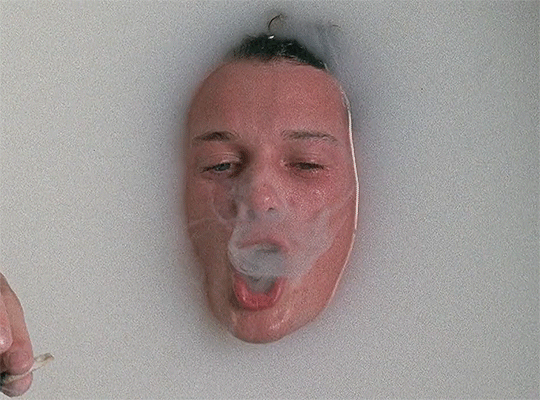

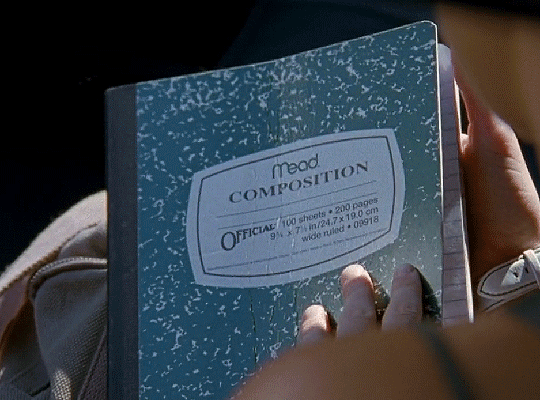
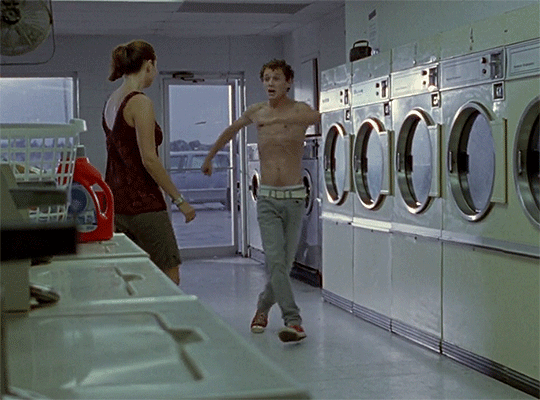

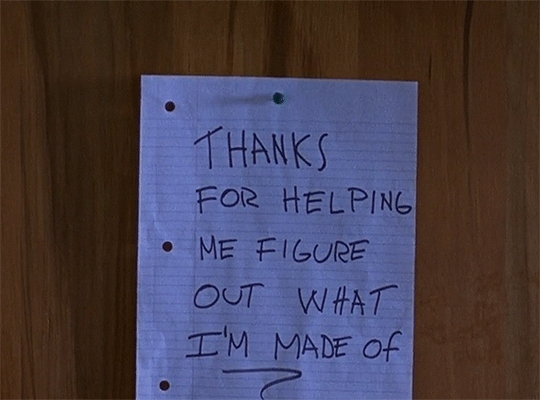
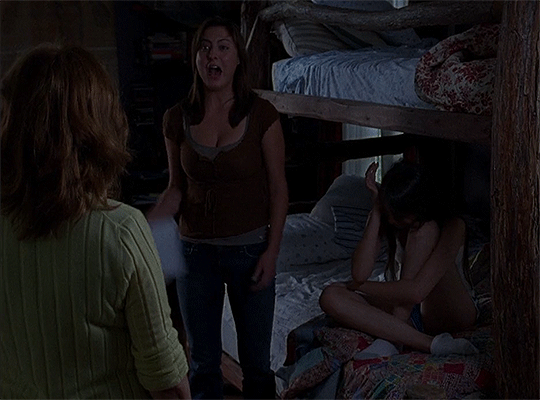
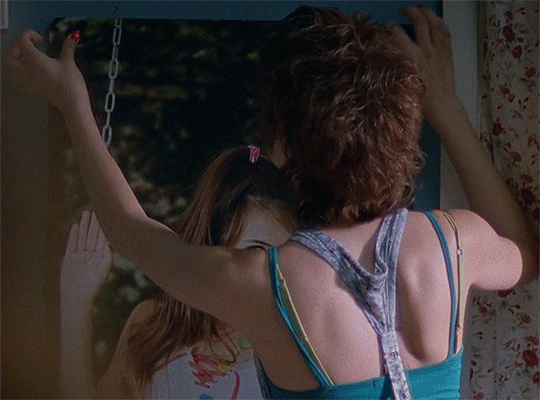

Middle of Nowhere (2008) dir. John Stockwell
#this was a little heartfelt movie that moved me so much#it visits many themes like (SPOILER) inevitable drug dealing trust taking advantage of a minor cheating being unwanted by your birth parent#there is no hero and you will hate and like every character differently#it's an amazing one to catch if you want to watch something more relaxing#wish more people can watch this film so i could talk more about it#middle of nowhere#middle of nowhere 2008#john stockwell#susan sarandon#anton yelchin#eva amurri#willa holland#filmgifs#doyouevenfilm#fyeahmovies#moviegifs#cinemapix
139 notes
·
View notes
Text
anyways the show removed one of the best parts of the books, which was that alina was fucking haunted by the darkling. there is nothing more interesting about their relationship than his existence as a ghost inside the halls of her mind
#shadow and bone#grishaverse#alina starkov#sab#aleksander morozova#the darkling#darklina#kinda#myramblings#the darkling is a ghost the darkling is already dead the darkling exists always as the specter of the man she is going to kill herself#his death is inevitable and it is inevitable because of the things he's faced the things he's done because of what was done to him#he is an example of everything wrong with the world that made him that way#and he is a tragedy#the show hardly did this correctly because it was all dream visits and no REAL haunting#that scene where alina is in his rooms is SO visceral#and they didn't include it#and of course that removed the fact that she struggles to reveal to her friends that he's haunting her#because what does that say about her?#and what will they think of her? for having this darkness inside of her. will they think she's like him?#but again it's just another complex facet of her character that's erased 🙄#whatever#all of these characters deserved better but especially alina and genya
73 notes
·
View notes
Text
Can the last four schools I’m waiting on pls just give me an acceptance like yesterday pls I’m going kind of crazy
#also maybe visiting Montréal was a bad idea bc it’s just gonna make me more upset when I’m inevitably rejected from McGill#also kind of crazy that I haven’t heard back from uwash yet they were literally the first to reject me last time#idk what conclusion to draw from this#.txt#please….. can someone accept me already
9 notes
·
View notes
Text
I miss driving!!! I miss long dark roads to the lake!!! I miss making my way home!!! I miss parking under the right tree and watching the wind play in the leaves and kicking my feet up to read while the breeze flows between my window and the open window on the passenger side!!! I miss going down a new road every day and following it to the end!!! I miss singing so loud!!! I miss following the sunset to the ocean!!!
#inevitably this becomes i miss the a1a and the 42 and the 11 and the 40 and the 44a and the 72 and the 789 and the 17 and the 305 etcetc#anyways. mitigated by i love you bus lines i love you weekly walks i love you parks i can regularly visit
8 notes
·
View notes
Text
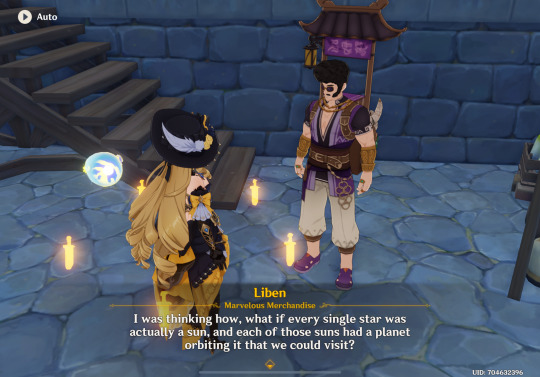


( he also says smth like “you might think im going to go to natlan next” before this i just didn’t take screenshots)
1) wtf liben?? somehow you’re smarter than all akademiya’s researchers and you’re here giving me primogems for fowl and 2 apples??
2) SO?? is our next adventure not in natlan but related to star rail?? maybe in the transitioning patch leading to natlan!!! are they gonna finally reveal traveler’s origin.. or maybe say that akivili once visited teyvat?? that the leylines are actually affected by a stellaron or a stellaron in itself
and since everyone is speculating (idk if it’s actual leaks) that natlan’s archon is a himeko, maybe it’s related to her and that her fate is to be a nameless or smth
like all im imagining is a synchronized patch between the two games that’s the exact same story but from different perspectives.. i mean genshin patch releases are only 7 days earlier than star rail (after they shortened 1.4 in hsr) and they both update on wednesdays
they could pull it off right?? riiiight?!
#obviously hyv made star rail to connect their universes in the first place so its inevitable that the crew would visit teyvat at some point#i just didn’t expect it to be so soon.. like star rail is just entering its 2.x era#i just think it would be really cool and i wanna see how they would introduce teyvat in star rail map if they do#and venti screaming in trailblazers ears ‘wouldn’t gliding be faster’ and they’re like ‘bitch i cant even jump’#alsooooo.. traveler clearly knows what trailblazing is like there are other ways to traveler in space (becoming an actual star.. comet??ig)#but they said (trailblaze) specifically.. are they a nameless too??#genshin impact#honkai: star rail#idk some bs my brain threw up
10 notes
·
View notes
Text
oh i don’t remember writing this??
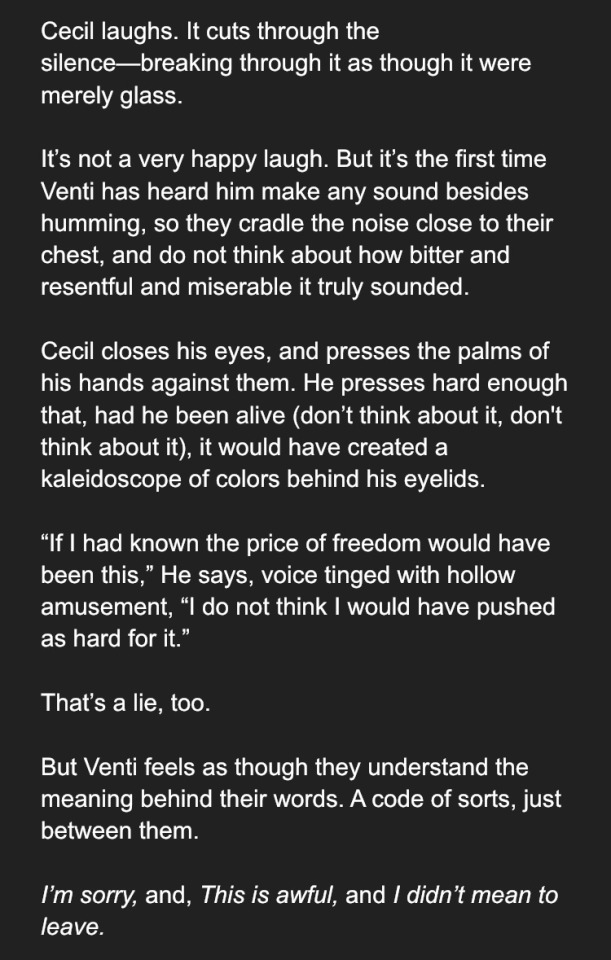
#i think i vaguely remember… what the plot was#where ven kept visiting nb who’s stuck in the ruins of where he died#and nb is just going through the horrors because as much as he prepared himself for the inevitability that one of them werent going#—to make it to the end#he still didn’t /want/ to die. he had so much ahead of him and it’s just…. mourning the life you Could had#a ghost grieving for themselves….#also can pry nb feeling slightly guilty over “leaving” ven from my cold hands#twas going to happen /eventually/#neither are prepared and ven is so desperate to hear nb’s voice again#an acknowledgment that nb is actually still /there/ (like to think it took a while for ven to set nb’s ghost off… if he ever did…..)#(also an even bigger fan of nb’s ghost just hanging around lmao)#GOD I KINDA WANNA CONTINUE THIS#nb yells at ragnvindr at some point dbdbdjdk#lantern says stuff#lantern’s writing corner#think im gonna tag wips with that too idk if im ever gonna finish em
11 notes
·
View notes
Text
thor: i was confused before i realized that i'm bisexual but now everything makes so much sense
thor: like now i understand why i start sweating whenever loki takes off his shirt
thor: i was starting to think i might be allergic to jotun
#vivid image of loki not changing in front of people often but when he is shirtless he’s got like nothing special underneath#like Thor is ripped beefcake but Loki is like normal maybe on the lean side#and Thor is there trying not to look to hard like 😳😳👀😳#Thor says no to your Asgardian standards of beauty#he’s simping for the guy only guy on the realm that visits the library and doesn’t have abs#this has been happening since they were like 14#thorki#Thor/Loki#crack#Thor: and it made no sense because it only happened sometimes but then when we found out Loki was adopted I thought hey maybe it’s the jotun#Thor: maybe I’m just allergic to their skin and since Loki covers up so much it’s don’t usually react#Thor: yeah. that makes sense#Loki: (tired and literally just putting his sleeping shirt on not even paying attention to Thor)#Thor: there has never been a better sight#Loki: huh? did you say something ?#Thor: no#Loki: ok (rubbing eyes. it really is time to sleep)#Thor: omg we’re sharing a tent 😳😳😳🥵🥵🥵🥵#Loki is going to get older and Thor is going to inevitably wring out a confession and Loki is going to be so oblivious#Thor: I was checking you out literally after every training session we had and I was not subtle about it#Loki: you mean you were disapprovingly judging me for not having improved in muscle mass#Thor: I literally still offer to share tents and bedding when we hunt#Loki: so we get away with carrying half of the supply weight than we would otherwise. ??
95 notes
·
View notes